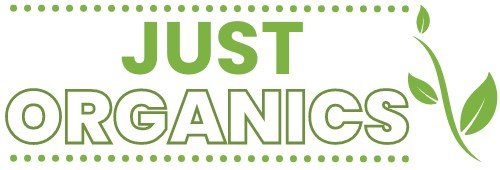Are you curious about organic certification and what it truly signifies? In this article, we will delve into the world of organic certification, exploring its importance, rigorous standards, benefits, and the process of obtaining it. By understanding these aspects, you’ll gain a comprehensive understanding of what organic certification really means.
Organic certification holds immense significance in today’s world where consumers are increasingly conscious about the quality and safety of their food. It provides assurance that the products labelled as “organic” have been produced using strict guidelines that prioritize environmental sustainability and animal welfare. By choosing certified organic products, you can be confident that they have met rigorous standards set by reputable certifying bodies.
The standards for organic certification are not taken lightly. They require farmers and producers to follow strict regulations regarding soil fertility management, pest control practices, the use of synthetic substances, genetic engineering, and much more. These standards ensure that certified organic products are free from harmful chemicals such as synthetic pesticides or fertilizers. Additionally, they also promote biodiversity conservation and sustainable farming methods that protect our fragile ecosystems.
Choosing certified organic products comes with an array of benefits. Firstly, you can trust that your food is grown without the use of genetically modified organisms (GMOs) or synthetic chemicals like antibiotics or hormones. This means fewer potential health risks for you and your family. Secondly, supporting organic agriculture contributes to environmental preservation by promoting healthy soil practices and reducing water pollution caused by chemical runoff. Last but importantly, buying certified organic products supports small-scale farmers who often face challenges in competing with large-scale industrial farms.
Obtaining organic certification is no easy feat; it requires dedication from farmers and producers alike. The process involves detailed record-keeping documenting all inputs used throughout production to ensure compliance with the stringent requirements set forth by certifying bodies. Farmers must undergo regular inspections to verify their adherence to these standards before being granted official certification status.
Now that we’ve laid out some groundwork on the importance, standards, benefits, and process of obtaining organic certification, we can dive deeper into debunking common myths and misconceptions surrounding this topic. By gaining a thorough understanding of what organic certification truly means, you’ll be equipped to make informed choices about the food you consume and support sustainable agricultural practices.
Key Takeaways
- Organic certification ensures that products meet strict standards for environmental sustainability and animal welfare.
- Choosing certified organic products promotes biodiversity conservation and reduces health risks associated with GMOs and synthetic chemicals.
- Organic certification requires a rigorous process of inspections, record-keeping, and laboratory testing to maintain integrity and transparency in the organic industry.
- Supporting organic agriculture through certified products contributes to environmental preservation and supports small-scale farmers.
Table of Contents

The Importance of Organic Certification
You should imagine yourself standing in a lush green field, surrounded by vibrant, pesticide-free crops that have been carefully cultivated under the strict guidelines of organic certification. Organic certification is crucial for several reasons. Firstly, it ensures the economic viability of organic farming by creating trust and credibility in the marketplace. When consumers see the certified organic label on products, they know that these items have met certain standards and have been produced without the use of harmful chemicals or genetically modified organisms (GMOs). This assurance encourages consumer confidence and drives demand for organic products.
Secondly, consumer awareness plays a significant role in organic certification. As more people become conscious about their health and the impact of their choices on the environment, they are actively seeking out organically certified products. This growing demand has led to an increase in sales of organic goods, benefiting both farmers and businesses involved in organic agriculture. By supporting organic certification, consumers are not only making healthier choices for themselves but also contributing to sustainable farming practices and protecting our planet.
Moreover, apart from its economic impact, organic certification is essential for maintaining the integrity and transparency of the organic industry. The rigorous inspection processes carried out by certifying bodies ensure that farmers adhere to specific guidelines throughout every stage of production – from seed selection to harvesting methods. These guidelines include avoiding synthetic pesticides and fertilizers while promoting soil fertility through natural means such as composting and crop rotation. By upholding these standards, organic certification safeguards against false claims or mislabeling that could deceive consumers.
Understanding the importance of organic certification is vital when considering its economic impact and role in consumer awareness. It provides reassurance to consumers about product quality while driving demand for organically grown goods. Additionally, it helps maintain integrity within the industry by ensuring adherence to strict guidelines throughout production processes. Choosing certified organic products not only supports sustainable farming practices but also contributes towards personal well-being and environmental preservation.
The Rigorous Standards for Organic Certification
The strict criteria for organic certification ensure that products meet high standards. Organic certification requirements are designed to guarantee that a product has been grown, processed, and handled in accordance with specific guidelines set forth by regulatory bodies. These guidelines typically include restrictions on the use of synthetic pesticides, fertilizers, antibiotics, and genetically modified organisms (GMOs). Additionally, organic certification requires farmers to implement practices that promote soil health and biodiversity conservation.
To obtain organic certification, farmers must undergo a rigorous organic certification process. This involves submitting an application to a certified third-party organization known as a certifying body. The certifying body will then conduct an inspection of the farm or processing facility to verify compliance with the organic standards. This inspection includes reviewing records and documentation related to farming practices, inputs used, and production processes. The certifying body may also take samples for laboratory testing to ensure that no prohibited substances are present.
The organic certification process does not end with the initial inspection. Certified organic operations are subject to regular inspections and audits to maintain their certification status. This ongoing monitoring is necessary to ensure continued compliance with the organic standards. Any deviations from the requirements can result in penalties or even loss of certification. By adhering strictly to these criteria, consumers can have confidence that products bearing an organic label have met rigorous standards throughout their production chain.
Benefits of Choosing Certified Organic Products
When it comes to choosing certified organic products, you’ll discover a multitude of benefits that go beyond just the quality and purity of what you’re putting on your plate. One major advantage is the environmental sustainability that comes with organic farming practices. Organic certification requires farmers to use methods that minimize pollution, conserve water, and protect soil health. By supporting organic agriculture, you are contributing to the preservation of biodiversity and the reduction of harmful chemicals in our environment.
In addition to environmental sustainability, there are significant health and safety benefits associated with choosing certified organic products. Organic standards prohibit the use of synthetic pesticides, genetically modified organisms (GMOs), antibiotics, and growth hormones in food production. This means that when you opt for certified organic fruits, vegetables, or animal products, you can be confident that they are free from potentially harmful residues or additives. Furthermore, studies have shown that organic crops often contain higher levels of beneficial nutrients such as vitamins and antioxidants compared to conventionally grown counterparts.
By opting for certified organic products, not only are you making a conscious choice for your own well-being but also supporting a system that prioritizes sustainable agricultural practices and promotes overall environmental health. The rigorous standards set by organic certification ensure that both consumers and farmers benefit from reduced exposure to toxic chemicals while enjoying nutritious food choices. So next time you make a trip to the grocery store or visit your local farmer’s market, consider reaching for those vibrant apples or luscious tomatoes labelled “certified organic” – knowing that they not only taste great but also contribute positively towards a healthier planet for future generations.
The Process of Obtaining Organic Certification
Imagine going on a journey to obtain organic certification for your farm and navigating through the rigorous process of meeting all the requirements. The first step in obtaining organic certification is the application process. You will need to fill out an application form, providing detailed information about your farm’s practices, including crop rotation plans, pest management strategies, and soil fertility management techniques. It is essential to be thorough and accurate in your responses as any discrepancies or false information can lead to rejection.
Once your application has been submitted and reviewed, the next stage is the inspection process. An inspector from a certifying agency will visit your farm to verify that you are following all the necessary organic standards. During this inspection, they will examine various aspects such as soil quality, water sources, record-keeping systems, use of prohibited substances like synthetic fertilizers or pesticides, and animal welfare practices if applicable.
The inspector will spend several hours thoroughly assessing every aspect of your farming operations to ensure compliance with organic regulations. They may also collect samples for lab testing if necessary. It is crucial to be well-prepared for this inspection by having all relevant documents readily available and being able to demonstrate how you meet each requirement. Once the inspection is complete, the inspector will provide a report detailing their findings.
Overall, obtaining organic certification requires patience, dedication, and adherence to strict guidelines throughout both the application and inspection processes. By successfully navigating these steps and meeting all requirements, you can proudly display the certified organic label on your products—assuring consumers that your farm has been verified as following sustainable farming practices that protect human health and the environment while promoting biodiversity and animal welfare standards.
Debunking Myths and Misconceptions about Organic Certification
Get ready to debunk those myths and misconceptions about organic certification; you’ll soon discover the truth behind this sustainable farming practice. One common misconception is that organic certification guarantees completely pesticide-free produce. While organic farmers do use natural methods and approved substances, it’s important to note that they still face pest issues. Organic certification ensures that synthetic pesticides are not used, but it doesn’t mean there are no pests or diseases affecting the crops. Instead, organic farmers focus on prevention and use integrated pest management techniques to minimize their impact.
Another myth surrounding organic certification is that it automatically means healthier or more nutritious food. While studies have shown some differences in nutrient content between organic and conventionally grown produce, the variations are not significant enough to conclude that one is consistently better than the other. The primary goal of organic farming is not necessarily to increase nutritional value but rather to promote environmental sustainability, reduce chemical exposure, and support biodiversity.
Organic certification plays a crucial role in building consumer trust in the agricultural industry. Some sceptics argue that the label “organic” is just a marketing ploy without any real benefits. However, strict regulations and third-party certifications ensure transparency and accountability throughout the production process. These standards require regular inspections, detailed record-keeping, and adherence to specific criteria for soil health, water quality management, animal welfare, and overall sustainability practices. By obtaining organic certification from reputable organizations, farmers demonstrate their commitment to meeting these rigorous standards while providing consumers with reliable information about their products origins and production methods.
Understanding the truth behind organic certification can help dispel common misconceptions surrounding this sustainable farming practice. It’s important to remember that being certified as organic does not mean crops are entirely free from pests or diseases but rather focuses on using natural methods instead of synthetic pesticides. Additionally, while there may be slight differences in nutrient content between organically grown and conventionally grown produce, the main emphasis of organic farming lies in environmental sustainability and reducing chemical exposure. Ultimately, organic certification plays a crucial role in building consumer trust by ensuring transparency and accountability throughout the production process.
Conclusion
In conclusion, understanding organic certification is crucial if you want to make informed choices about the products you consume. By obtaining organic certification, farmers and producers commit to rigorous standards that prioritize environmental sustainability and animal welfare. This certification ensures that the products you purchase are free from synthetic chemicals, pesticides, and GMOs.
Choosing certified organic products not only benefits your health but also supports a more sustainable and ethical food system. These products are grown using natural methods that promote soil health, biodiversity, and water conservation. Additionally, organic farming practices contribute to reducing greenhouse gas emissions and protecting pollinators.
Obtaining organic certification is a meticulous process that involves regular inspections by accredited certifying bodies. Farmers must adhere to strict guidelines throughout the production process, from seed selection to packaging. This ensures transparency and accountability in every step of the supply chain.
Despite some misconceptions surrounding organic certification, it remains a reliable indicator of product quality and integrity. The use of third-party certifiers guarantees that strict criteria are met before a product can be labelled as “certified organic.” So next time you’re shopping for groceries or cosmetics, look for that official seal of approval – it’s your assurance of purchasing products that align with your values of health, sustainability, and animal welfare.

